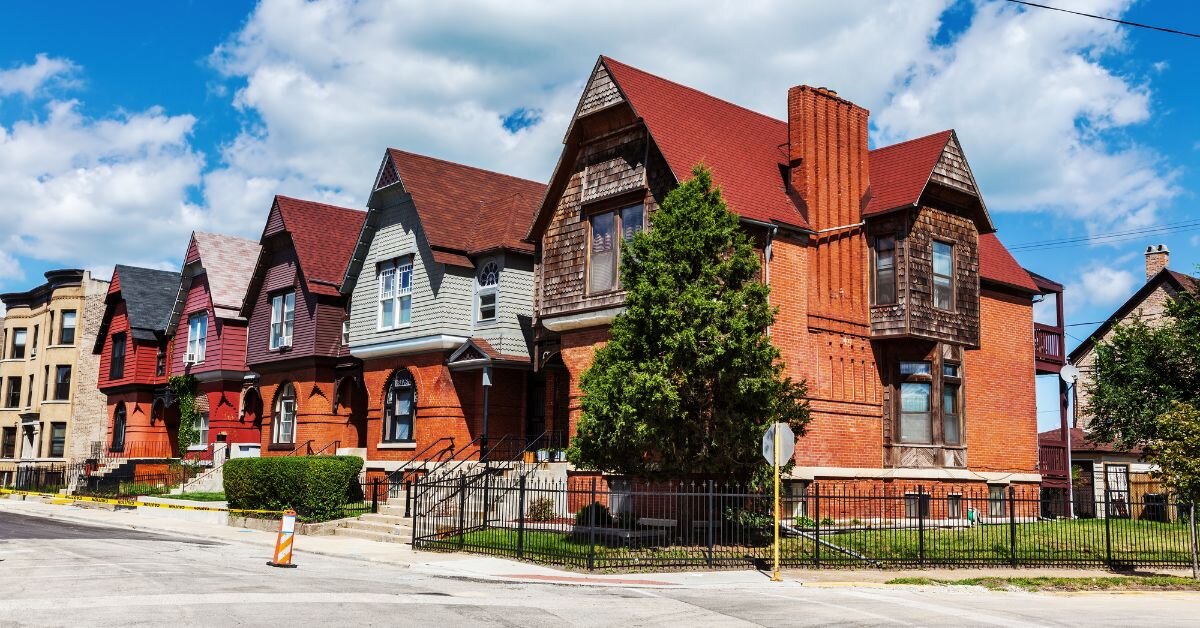
Selling a home at auction in Oakland, Alameda County, can be an efficient way to close a deal quickly without the usual hassles of traditional home sales. If you’re looking to avoid the uncertainty of waiting for buyers or dealing with repairs, an auction might be your best bet. The process is simple but requires some planning, especially if you want to maximize the value of your property. Whether you’re selling due to financial struggles or just need a quick sale, here’s what you should know. Choosing to sell a home at auction in Oakland can help homeowners achieve a quick and hassle-free sale, making it an ideal option in today’s competitive real estate market.
The Process of Selling Home at Auction in Oakland
The home auction process is straightforward but needs careful preparation to get the most out of it. Auctions help homeowners bypass traditional sales delays by offering a fast, streamlined way to sell a property. It begins with hiring the right auctioneer, someone who understands your local market and has experience with your type of home. Next, they handle the marketing and organizing of the auction event. Once the property is listed, potential buyers are brought in to bid on the home. The entire process usually takes just a few weeks, unlike traditional methods that can drag on for months.
What is the Home Auction Process?
The home auction process begins with hiring the right auctioneer who specializes in your type of property and has experience in your local market. The auctioneer will then develop a plan to market your home, ensuring it reaches the right audience. Once the property is listed, interested buyers are vetted through the bidders qualification process to confirm their ability to purchase. Finally, the auction itself is held, which can take place online, at the property, or in a central location. The highest bid wins, and the sale is usually finalized within a few days to weeks.
Why Choose the Auction Method?

Choosing the auction route offers several advantages, especially for homeowners looking to save time. The process is fast, often eliminating the need for open houses and lengthy negotiations. It also simplifies the selling experience by removing contingencies and closing delays. In most cases, the sale is completed “as-is,” meaning sellers don’t need to spend money on repairs or upgrades. Auctions are particularly beneficial in competitive markets like Oakland, where a well-marketed property can attract multiple serious buyers.
Finding the Right Auctioneer
The first step in the home auction process is hiring a skilled auctioneer. This individual plays a key role in managing the sale and marketing your home to the right audience. It’s crucial to choose an auctioneer with experience in properties like yours. A good auctioneer will understand local market trends and use effective auction marketing strategies to attract qualified bidders. Before hiring, ask for references, review their credentials, and ensure they have a good track record of successful sales.
Qualifying Potential Bidders
A key part of the home auction process is the bidders qualification process. This step ensures that only serious buyers participate, minimizing the risk of delays or failed transactions. Auction houses may require buyers to present pre-approval letters, make deposits, or undergo credit checks. These measures confirm the financial capability of bidders, creating a smooth path to closing the sale after the auction.
Setting Up the Auction Event
Once bidders are qualified, the auction event is scheduled. Auctions can take place on-site at the property, in a central location like a ballroom, or online. The format depends on the property type and the auctioneer’s strategy. For instance, on-site auctions might work best for residential properties in Oakland, while online auctions could attract a wider audience. The auctioneer will oversee the event, ensuring all bids are recorded and handled fairly.
Auctioneer Compensation for Selling Home at Auction in Oakland
Understanding auctioneer compensation is important before you sign a contract. There are a few ways auctioneers get paid, and you’ll want to clarify this early. Some take a percentage of the final sale price—usually around 2% to 5%. Others charge buyers an auction premium, which is typically about 10% of the sale price. Sometimes the fees are split between both buyer and seller. Make sure you discuss payment terms thoroughly, as unexpected costs could eat into your profits. It’s always better to have everything in writing so there are no surprises later.
Types of Home Auctions

When selling your home at auction, you’ll have three main auction types to choose from. Each one offers different levels of control and risk for sellers. Here’s a breakdown of your options.
Absolute Auction
In an absolute auction, the property is sold to the highest bidder, no matter what the price is. This type of auction generates a lot of interest because buyers know the sale is guaranteed. However, it’s also risky for sellers since there’s no minimum price, meaning the home could sell for less than its market value. This option works best when you need a quick, no-strings-attached sale.
Minimum Bid Auction
With a minimum bid auction, the seller sets a starting price that bidders must meet or exceed. This provides a layer of protection by ensuring the home doesn’t sell below a specific value. It’s a good choice for sellers who want some security while still attracting serious buyers.
Reserve Auction
In a reserve auction, the seller has the power to accept or reject the highest bid. This type of auction offers the most control but may deter buyers who don’t want to risk bidding on a home that may not sell. Buyers typically have up to 72 hours after the auction to finalize their offers.
Qualifying Potential Buyers
The bidders qualification process is designed to ensure that only serious buyers participate in the auction. This reduces the risk of failed transactions. Auction houses often require buyers to provide a pre-approval letter from their bank or make a deposit—usually a percentage of the expected sale price. Credit checks are also common, especially for high-value properties. By pre-qualifying bidders, auctioneers help guarantee that the winning bid results in a successful sale. This step is crucial for avoiding delays or complications during the closing process.
Auction Marketing Strategies
Effective auction marketing strategies can significantly impact the success of your sale. Auctioneers use a combination of online and offline methods to attract buyers. This might include social media campaigns, targeted email blasts, and even local newspaper ads. The goal is to maximize the property’s exposure, bringing in as many qualified bidders as possible. For sellers in Oakland, leveraging these strategies is essential, given the competitive nature of the local real estate market. With the right marketing, you can create a buzz that drives up bids and gets you the best price for your home.
Costs of Selling a Home at Auction
Selling a home at auction involves some costs, but these are often lower than traditional sales expenses. Auctioneer fees range from $200 to $1,000, depending on the property and location. These fees might include marketing or be billed separately. Other potential costs include closing expenses, although these are usually less than what you’d pay in a conventional sale. Make sure to review all terms with your auctioneer to understand the full scope of expenses. Being aware of these costs upfront will help you budget more effectively and avoid surprises.
Benefits of Selling a Home at Auction in Oakland
Selling your home at auction in Oakland offers unique advantages. For one, it’s much faster than traditional sales. Auctions usually take weeks instead of months, which is ideal for homeowners in a hurry. Additionally, you won’t need to worry about repairs or showings since homes are sold “as-is.” The certainty of a sale is another major benefit, especially if you choose an absolute auction. For sellers in Oakland, where the market can be unpredictable, an auction provides a reliable way to close the deal and move forward.
The Bottom Line
Selling a home at auction in Oakland, Alameda County, can be a practical and efficient way to finalize your sale. With the right auctioneer, clear preparation, and effective auction marketing strategies, you can ensure a smooth process that meets your needs. Whether you’re dealing with financial difficulties or simply want to sell quickly, auctions offer flexibility and speed that traditional sales often lack. Consider working with experienced professionals, such as those at We Buy Houses County Wide, to navigate the process with confidence and ease.

Kevin J Roberts
Licensed Real Estate Broker & Investor
Kevin Roberts is a seasoned real estate expert with 40+ years of experience, excelling
in property investments, sales, and client satisfaction in the State of California.
FAQs
How fast can I sell my home at auction?
Homes sold at auction often close within a few weeks, offering a much faster process compared to traditional real estate transactions.
What costs are involved in selling a home at auction?
Typical costs include auctioneer fees (2%-5% of the sale price) and potential marketing expenses, though these are generally lower than traditional selling costs.
Do I need to fix my home before auctioning it?
No, most homes are sold “as-is,” saving you the hassle and expense of making repairs or staging the property before the auction.
Can I set a minimum price for my home at auction in Oakland?
Yes, with a minimum bid auction, you can establish a price threshold to ensure your property sells for an acceptable amount.
How are buyers qualified for home auctions?
Auctioneers require pre-approval letters, deposits, or credit checks to ensure bidders are financially capable of completing the purchase, reducing risks of failed transactions.

